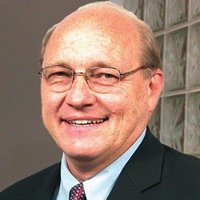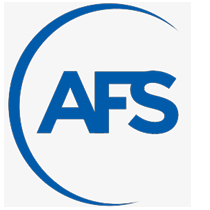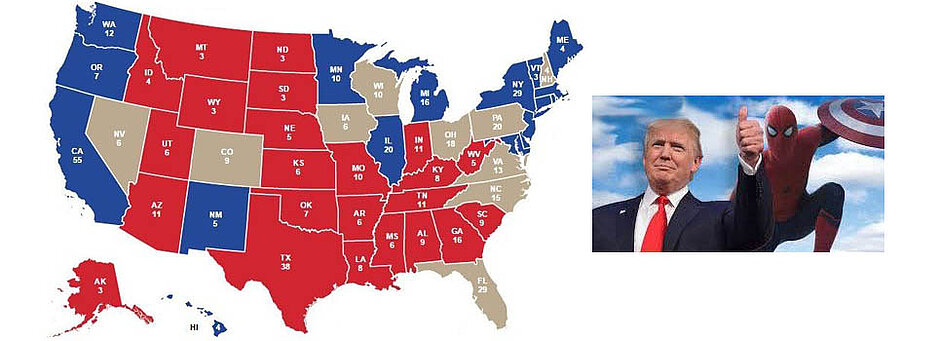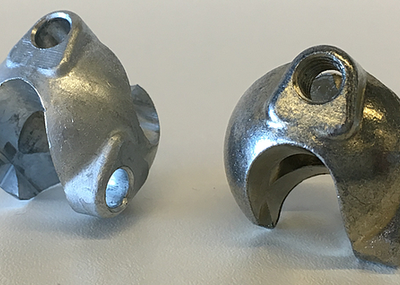Donald Trump’s victory to the White House has stunned many and generated strong reactions from all over the world. With the markets in a current frenzy and uncertainty about the future, it has left many in the industrial world wondering how this election will affect their business at home and abroad.
Foundry Planet has received the very first statements from the U.S., on how this election may impact the industry. Mr. Jerry Call
Mr. Jerry Call
Former CEO of American Foundry Society
Current WFO Member
What is your expectation for the American industry policy especially for metal castings?
Probably the most significant reason for optimism in the manufacturing sector, and especially metalcasting, is the strong expectation that a Trump administration will put the brakes on runaway, crippling over regulation. The burden of the torrent of Federal regulations imposed on manufacturing - and the uncertainty of more regulation under a possible Clinton administration - kept companies from capital investment and creating jobs.
Will there be an upswing for US foundries caused by more domestic production?
Yes, I believe within one year to 18 months, we will see the domestic production begin to trend up. Whether that will be a blip or the beginning of a true change will be determined by the degree to which the new administration can ease the regulatory and tax burden on foundries and how rapidly.
Do you expect any impacts for the Mexican foundry industry?
Not within the first year to 18 months as it will take at least that period of time for the positive changes I referenced in point 2 to have a bottom line impact and improve the business climate for U.S. casting production.
What are possible consequences for European machinery suppliers?
Wow, a number of factors come in to play: 1. What will be the strength of the dollar? 2. What will a Trump administration trade "partnering/pact/protection" strategy look like? 3. Will Trump select a strong, globally-experienced, business-savvy cabinet a team of close advisors as anticipated. Mr Daniel Twarog
Mr Daniel Twarog
NADCA President
Now that the people in the U.S. have spoken. They expect change in Washington DC. We look forward to policies which are favorable to all manufacturing industries in the United States. A "balance of trade" is very important to grow the U.S. economy. We would expect that some action be taken to make sure trade doesn't only go one way - into this country.
If steps are taken to balance trade, we would expect an increase in production at U.S. foundries. I believe the election results send a message to our government that 'Made in America' means something to a vast majority of people here. While we think it is important to trade globally, it is important the trade be fair for both sides.
The North American Free Trade Agreement (NAFTA) was signed in the early 1990's to create less obstacles of trade between Canada, the United States and Mexico. While the balance of trade has been good between the U.S and Canada, an imbalance of trade continues to grow between the U.S and Mexico. This has been fueled by large companies chasing the low wages in Mexico while taking advantage of the NAFTA agreement. If the current agreement remains enforce, then there should be no impact in the growth occurring in Mexico. However, if the NAFTA agreement is modified and a balancing of our trade with Mexico is attempted, I think there will be a negative impact on the growth of the foundry industry in Mexico.
All machine suppliers (including those in European) have benefited from the global growth of die casting production. While the price of the machine is important, companies also make the decision on which machine to purchase based on it's ability to produce quality castings. Whether it's made in Italy, China, the U.S., or Switzerland it has to be a good machine. To the machine suppliers, it most likely doesn't matter where they sell their equipment around the world. They will sell it because of its quality. Growth in the production of die castings will continue and therefore should not have an impact on the machine suppliers.  Statement from AFS
Statement from AFS
The American Foundry Society (AFS) announced today that it is looking forward to working with the new President, administration, and Congress to advance sound public policies affecting the $28.5 billion metalcasting industry.
“The voters have spoken, and now it is time to begin addressing our challenges,” said AFS President Jeff Cook (Eagle Alloy). “Metal castings are an integral part of 90 percent of manufactured goods,” he noted. “Metalcasters are the mainstay of national defense. All sectors of the U.S. military are reliant on metal castings for jet fighters, ships, tanks, trucks, weapon systems and other vital components.”
AFS, with more than 800 corporate members, 7,000 individual members, and 44 regional chapters, is the voice of the metalcasting industry in North America. Advocacy is one of the three pillars of the AFS Vision, alongside education and innovation.
CEO Doug Kurkul added, “AFS will advocate regulatory policies that are based on sound science and cost-benefit analyses. In particular, we will pursue our litigation against OSHA for its misguided crystalline silica rule.” The rule will cost the industry more than $2.2 billion annually – more than 50 times OSHA’s inaccurate estimates.
“Our nation’s tax system has created an uncertain environment that hinders our industry’s ability to compete in the global marketplace,” noted AFS Government Affairs Committee Chair Brad Muller (Charlotte Pipe). “Tax reform is essential to making the United States the best place to operate and manufacture.”
U.S. metalcasters continue to face significant trade challenges from foreign government trade-distorting policies and practices. A more aggressive U.S. trade policy is needed to combat these practices in order to preserve and strengthen our nation’s manufacturing base.
Among other issues, AFS will encourage Congress and the Administration to make a commitment to long-overdue investments in infrastructure. More than 30 percent of casting production goes into infrastructure – accounting for 3 million annual tons of castings.
The Society opposes a recent Treasury Department draft regulation that would remove legitimate valuation discounts for estate, gift and generation-skipping taxes which businesses have used for the past two decades. AFS also opposes EPA’s ozone regulation and so-called Clean Power rule.
Muller encouraged all metalcasting and supplier business owners and managers to participate in the annual AFS Government Affairs Conference in Washington, D.C. on June 20-21, 2017. The event will feature briefings on policy issues, a luncheon with a major political speaker, and congressional visits with lawmakers and their staff.
Information is available by contacting Stephanie Salmon at <link>ssalmon@afsinc.org
×



